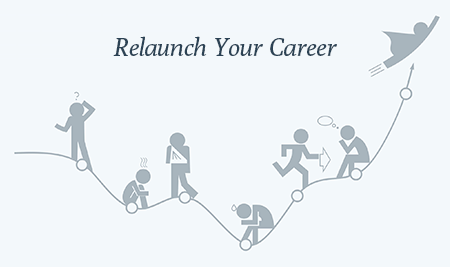You never know where you’ll find your next role. It’s certainly possible you’ll find your next job through “traditional” means like job boards or job postings. However, you’re much more likely to stumble upon your next role when you least expect it. Most statistics suggest employers fill the majority of job openings through the “unadvertised job market,” e.g., word of mouth, networking, referrals, etc. So how do you maximise your chances of being thought of as a viable candidate when you cross paths with someone who may know about a suitable role for you?
My recommendation is to prepare your responses to common questions that repeatedly come up in professional networking contexts. By “prepare,”I mean to literally write down and rehearse what you’ll say. Preparation allows you to come across as thoughtful, professional, and focused. Chris Anderson, the original curator of TED talks advises speakers memorise their speeches for important talks. The same rule applies to important, common conversations. You’ll almost always come across as more polished and confident if you have a sense of what you want to say before you actually say it. If you’re worried about sounding too robotic, fear not. Most professionals just don’t sound excessively scripted unless they’re literally reading from a script.
Whether you’re currently employed and open to new opportunities or unemployed and looking for a new job, you should be always ready to answer the following three questions. There are others, but these are the big ones!
1. So, what do you do?

Ahh yes, an all-time favourite. As much as most people dislike this question, it’s probably the most common question you’ll get in any social or professional networking setting. Many people who meet me may notice I don’t tend to ask this question. That’s because I personally find most responses tell me very little about the things I find most interesting about people. However, I’ll admit the question is hard to avoid. Last week, I attended a party, and the longest I could go before someone asked me this question in any single conversation was about 60 seconds. Describing what you do isn’t always straightforward, so thinking about your response in advance tends to result in a more powerful answer.
If you’re a traditional job seeker, it can actually be quite effective to respond by simply stating your professional job title, company, scope of responsibilities. The job title & company are easy enough, but the scope of responsibilities is something you’ll want to consider beforehand. Of your many responsibilities, which are the 3 or 4 you feel best highlight your key strengths, interests, and personal brand, especially those most relevant to your target employer or role? Share those.
If you’re a business owner or have a less traditional background, I’ve found the most informative answers revolve around sharing your key passion, mission, or value you provide to others. To give you an example, these days, I tend to say something along the lines of:
I focus on helping people relaunch their careers and pursue more meaningful work by defining and marketing their personal brands more effectively.
This response has worked well for me as a decent conversation starter, but only after I actually became clear with myself on how I wanted to communicate “what I do.”
2. What’s your background?

This may seem like an easy question, because you obviously know your own history. However, knowing your background is one thing. Being able to summarise it in a succinct, useful fashion is another, especially if you’re trying to boil 10 years of history down into a 20-30 second summary. How you describe your professional story will have a direct impact on how others perceive your skills, strengths, and career trajectory, so being thoughtful about how you respond to this question will have a direct impact on whether others will keep you in mind if they hear about a role that could potentially suit someone like you.
My recommendation is to summarise personal highlights: e.g., where you’re from & your current living situation, then professional highlights: e.g., years in the industry, summary of key roles, scope of companies at which you’ve worked, and a couple key functional experiences relevant to your target employer. This could sound something like:
I currently live in London after moving here from this place 5 years ago. Prior to working at Company X, I spent 3 years working in corporate branding then 5 years as an FMCG brand marketer working on household goods brands at Company Y mainly focused on new product development, packaging design, and agency management.
This structure gives people a sense of who you are, your professional skills, and functional background.
3. What are you looking for?

This question tends to come up in the context of recruiters/headhunters fishing to see if you could be a viable candidate for a role they’re trying to fill. However, it can also come up in more casual settings after you disclose you’re open to new opportunities or actively hunting for a job. Be specific, concise, and targeted instead of vague and open to anything. Tom Fishburne’s One Size Fits None Marketoonist cartoon captures the importance of this well. And as marketers, we all know trying to be everything to everyone means you’ll stand out to no one.
So be very specific, and confidently declare the type of role, company, industry, geography, and culture you’re seeking whilst expressing an openness to other related roles. You’ll sound like a much more focused professional, and someone’s much more likely to think of you if that specific role or a related one comes up. It could sound something like:
I’m looking for a client-side, brand management role with people-management responsibilities and opportunities to oversee advertising, brand strategy, and agency relationships at an innovative company in the beauty industry based in the greater London area, but I’m also open to other brand opportunities that allow me to apply my client-side FMCG experiences and skills.
This allows someone to clearly understand what you’re looking for, but also keep you in mind if another promising role comes up.
As we all move towards consuming information in headlines & bite-sized chunks, clarity, specificity, and brevity can be incredibly effective. Being clear and concise is critical. You don’t want to stumble during these important conversations. So have your answers prepared ahead of time. Practice them. Out loud. Again and again. If you rehearse them a few times on your own, your live message delivery will be more relaxed, natural, and confident. It may just make the difference between someone thinking of you or forgetting about you when your dream role comes along.
Over to you! What are some common questions you’ve regularly faced during your job hunt? How have people reacted to your responses?
Learn more about how to deliver your personal elevator pitch
 For more specific guidance on exactly how to deliver a persuasive personal pitch so you can stand out to recruiters and hiring managers to land your dream job, check out my full, 90 min course on Mastering Your Personal Elevator Pitch. In the course, you’ll learn specific verbal frameworks to respond to these 3 questions:
For more specific guidance on exactly how to deliver a persuasive personal pitch so you can stand out to recruiters and hiring managers to land your dream job, check out my full, 90 min course on Mastering Your Personal Elevator Pitch. In the course, you’ll learn specific verbal frameworks to respond to these 3 questions:
- “What’s your background?” so you can create more meaningful connections when networking
- “What are you looking to do next?” so you can make a more memorable impression with recruiters
- “Tell me about yourself.” so you can stand out to hiring managers during interviews.
I offer this course at a special price to my website visitors, giving you lifetime access to the course for $59 (70% off regular $200). Preview the course and join today if you want to learn how to deliver a strong elevator pitch to land your next dream role.
Get 70% off elevator pitch course
Get more career tips & insights
Check out my Career Change & Personal Branding Resource Hub for other helpful exercises to help you navigate each career stage.
If you aren’t already subscribed, you can sign up for my newsletter to receive more articles and insights from me on career change and personal branding.



